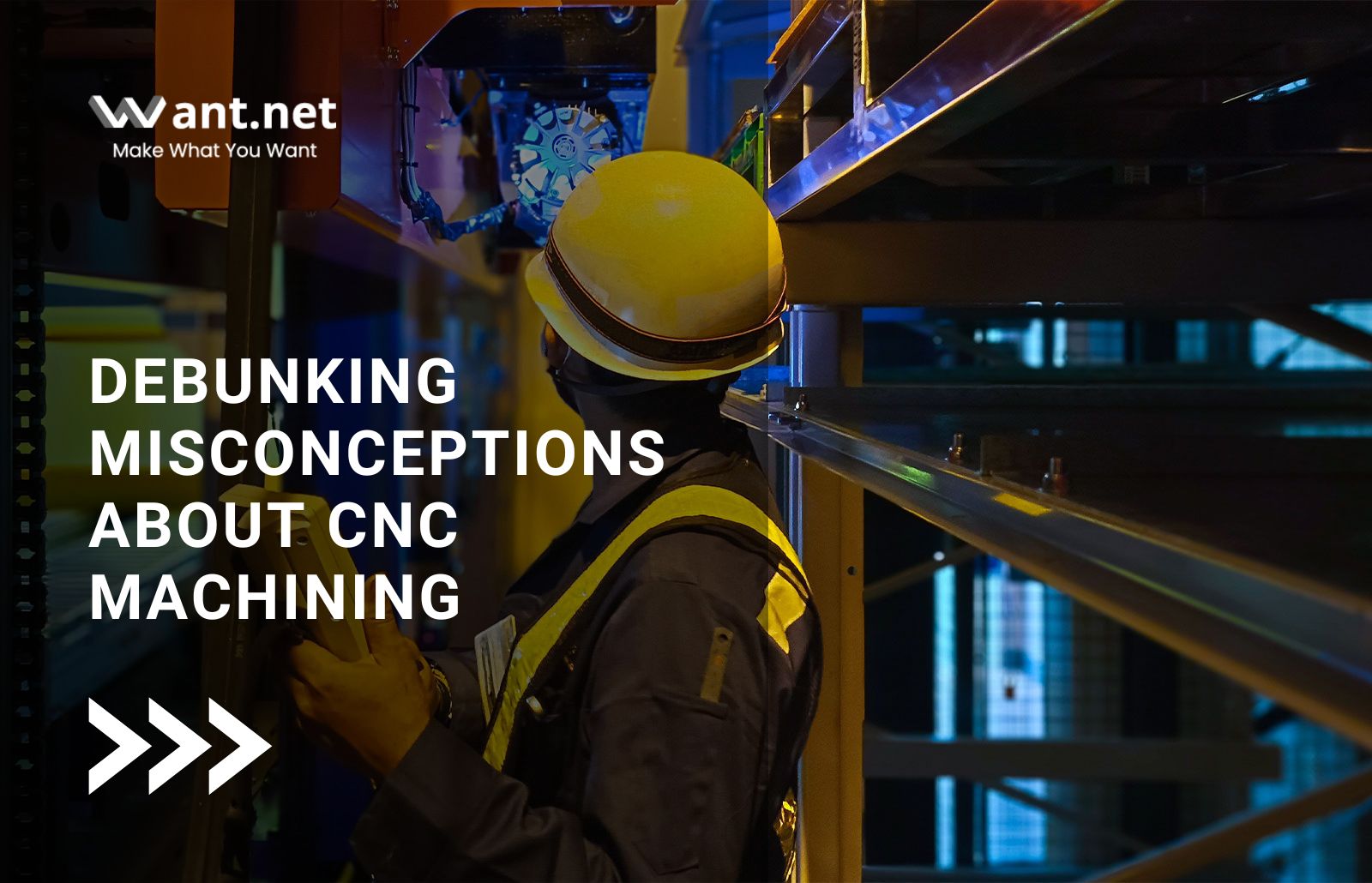CNC machining is a precise and efficient manufacturing process that utilizes computer-controlled machines to create intricate parts with utmost accuracy. Despite being a well-established technique, several misconceptions about CNC machining persist. In this article, we’ll explore some of the most common misconceptions about CNC machining and provide insights into the reality of this important manufacturing technique.
Misconception 1: CNC machining is only suitable for large-scale manufacturing.
A prevailing misconception about CNC machining is that it is exclusively employed in large-scale manufacturing operations. While CNC machines are indeed prevalent in industries such as aerospace, automotive, and electronics, they are also extensively used in smaller-scale manufacturing scenarios like prototyping and small-batch production.
Recommended Read: The Vital Role of CNC Machining in Aerospace Industry
For instance, consider a small business owner specializing in custom jewelry design. They may require a limited number of intricate metal parts for their products. Instead of laboriously crafting these parts by hand, which is time-consuming and prone to errors, they can utilize a CNC machine to achieve precise and consistent results.
Misconception 2: CNC machining is too expensive for small businesses.
Another misconception surrounding CNC machining is its perceived expense for small businesses. While it is true that CNC machines can have a high initial cost, technological advancements and increased competition among manufacturers have led to a reduction in prices over the years.
Furthermore, small businesses can opt for outsourcing CNC machining services to third-party providers, which can be a cost-effective alternative. By partnering with a CNC machining service, small businesses can benefit from the precision and efficiency of CNC machining without incurring the upfront costs of purchasing a machine.
Misconception 3: CNC machining is limited to metal parts.
Although CNC machining is commonly associated with metal parts, it is equally capable of creating components from a wide range of materials, including plastics, ceramics, and composites. In fact, CNC machining is often preferred for these materials due to its ability to achieve precise cutting and shaping that may be challenging with alternative manufacturing methods.
Consider a manufacturer specializing in dental implants. They may need to produce parts using biocompatible materials such as zirconia or titanium. CNC machining allows for the creation of these parts with the necessary precision and accuracy required for medical applications.
Misconception 4: CNC machining is a fully automated process.
While CNC machines are highly automated, they still require skilled operators to set up and operate them. CNC machining involves programming the machine with specific instructions that dictate how the material should be cut and shaped. Competent operators are responsible for creating these programs and ensuring the machine functions correctly.
Additionally, CNC machines necessitate regular maintenance to ensure optimal performance. This entails cleaning, lubricating, and inspecting the machine, as well as replacing worn-out components.
Recommended Read: 5 Ways to Increase CNC Machining Efficiency
Misconception 5: CNC machining eliminates the need for skilled workers.
Although CNC machining has automated various aspects of the manufacturing process, skilled workers remain essential. They are responsible for operating the machines and verifying that the finished parts meet the required specifications. Skilled workers create the programs that guide the machine’s cutting and shaping operations, as well as monitor the machine during operation to ensure its proper functioning.
Moreover, skilled workers conduct meticulous inspections of the finished parts, utilizing precise measuring tools like micrometers and gauges to assess dimensions and tolerances.
Misconception 6: CNC machining can replace all other manufacturing methods.
While CNC machining is an exceptionally versatile manufacturing method, it is not always the optimal choice for every application. For instance, if the goal is to produce a large quantity of simple parts rapidly, a high-speed stamping press might be a more efficient alternative. Likewise, if intricate shapes and fine details are required, 3D printing could be a better option.
It is crucial to evaluate the specific requirements of each manufacturing project and select the most appropriate method accordingly. CNC machining is just one of several available manufacturing methods, and its suitability depends on the unique circumstances of each application.
Misconception 7: CNC machining is a one-size-fits-all solution.
Even within the realm of CNC machining, there exists a diverse range of machines and processes. For example, 3-axis, 4-axis, and 5-axis machines each have their own advantages and disadvantages. Different cutting tools, materials, and programming languages can also be utilized with CNC machines.
Collaborating with an experienced CNC machining service provider is vital to selecting the most suitable machine and process for specific requirements. By carefully choosing the right combination of machine, tooling, and programming language, manufacturers can achieve the highest levels of precision and efficiency in their projects. Know more here.
Separating Fact from Fiction
CNC machining is a powerful and versatile manufacturing method that has revolutionized numerous industries. However, misconceptions surrounding CNC machining persist. By understanding the realities of CNC machining, informed decisions can be made regarding its optimal utilization in business operations.
Remember that CNC machining is not a one-size-fits-all solution, and various machines and processes are available. By partnering with an experienced CNC machining service provider, businesses can identify the most suitable machine and process for their unique requirements.
Lastly, it is crucial to recognize that CNC machining still relies on skilled workers to operate the machines and ensure that the finished parts meet specifications. While CNC machining has automated numerous aspects of the manufacturing process, it has not rendered skilled workers obsolete.
In conclusion, CNC machining is a complex and valuable manufacturing method that demands a deep understanding of its capabilities and limitations. By dispelling misconceptions surrounding CNC machining, we can better appreciate its power and potential in the world of manufacturing.
Check out more CNC knowleadge here.








